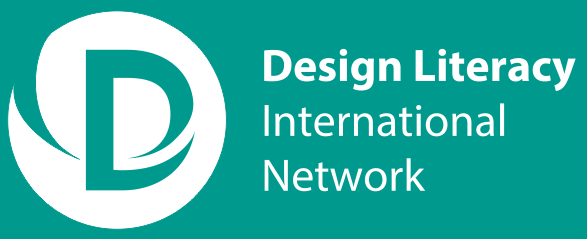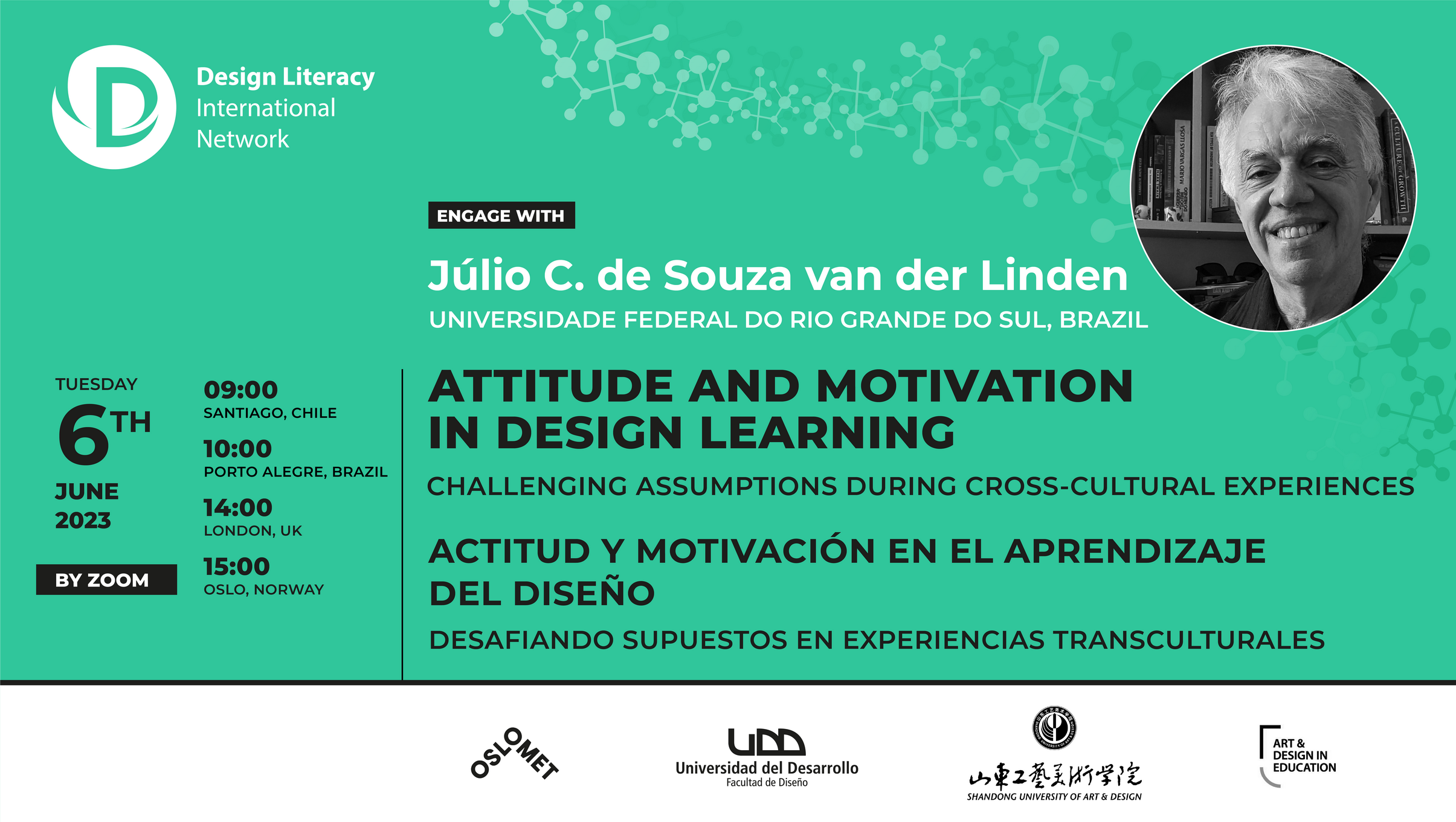
In the upcoming June’s Engage with Ideas talk, Júlio van der Linden will discuss how an international design studio has challenged his and his students’ assumptions. He will suggest that firmly embedded and almost unquestioned assumptions in design or pedagogical practices could be critically examined, challenged, and changed when students and teachers have to deal with motivational factors. As the design studio education pedagogies and designers practices rely heavily on self-reflection as a learning strategy (Schön, 1983) firmly embedded assumptions may prevent design students and lecturers from critically examining their practices which in turn may limit their learning. The talk will reflect on the research findings which were outlined in three separate research papers (Branda at al., 2019; Nichetti at al., 2019; Torrezzan at al., 2019).

For example, Júlio’s past experiences of working with students led him to assume that one of the student project team will struggle with carrying on the international design project. He assumed that this student team would require extra support from the academic staff to cope with the complexities of the project. However, to his surprise the team actually delivered one of the best design project results. Review of the projects suggested that it was a frequent and rich interaction with their collaborative project team located at another university which has provided the level of motivation for this particular student project team to positively engage with the learning activities.

For the students, their embedded assumptions around design practices and about their local societies tend to limit the level of detail around how and what information they share with their pairs during the initial stages of the project. Frequently tensions during the process provoke changes in students’ assumptions. Júlio observed that it happens in two ways: pulled by the need for more information by one team or both, and/or pushed by new insights about how the design process might be performed.
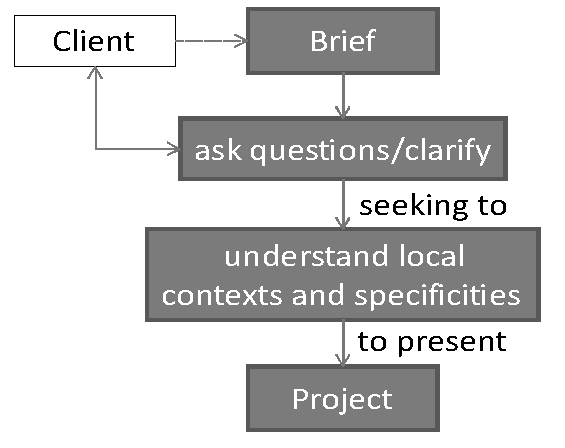
Júlio’s experience in international collaborative online learning is based on different formats. Initially, he worked with volunteer undergraduate students, later he included this activity in an undergraduate required course, and once in an undergraduate elective course. In each one of these formats, different motivations are involved. Voluntary participation depends mostly on strong intrinsic motivation, attending required undergraduate courses follows extrinsic motivation.
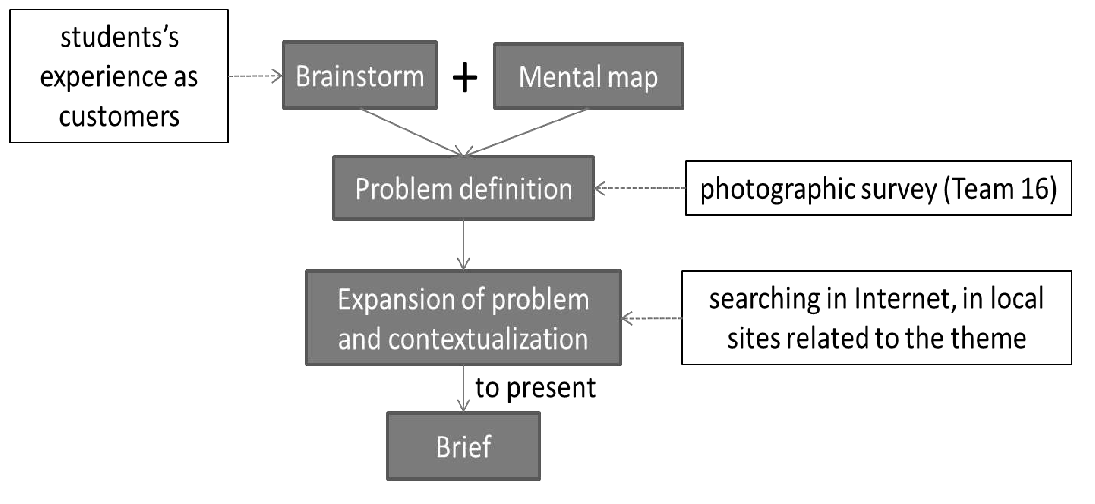
Reflecting upon his experience, Júlio concludes that some of the students tend to respond surprisingly well when they are challenged to take risks beyond their comfort zone. Stress, complaints, irritation, and other negative affective responses play a positive role in their behavior, as a dynamic set of intrinsic and extrinsic motivations drives their performance.
Event recording in ENGLISH:
Event recording in SPANISH:
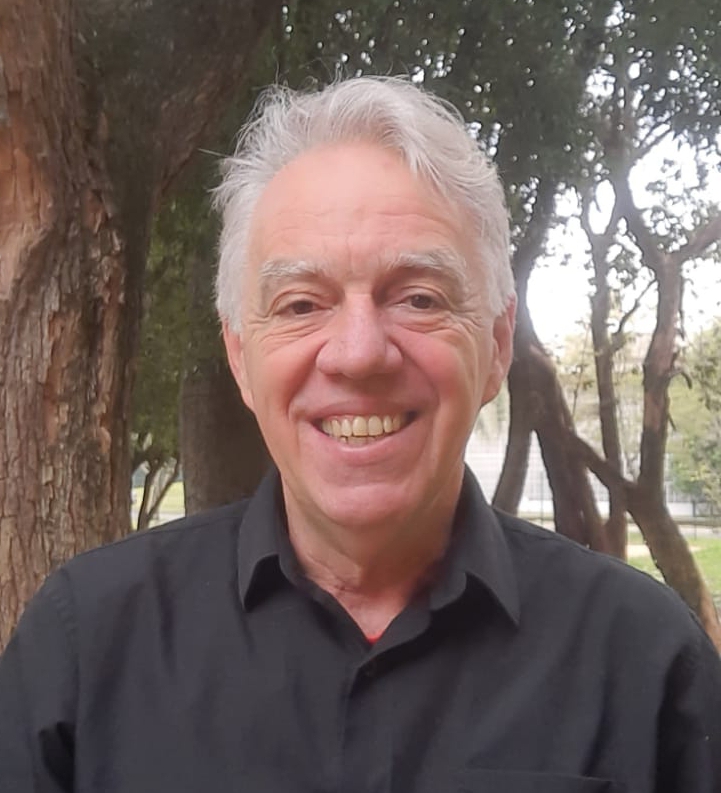 Júlio graduated as an industrial designer from the Federal University of Pernambuco (UFPE – Recife, Brazil) and holds a master’s and a doctorate degree in Industrial Engineering from the Federal University of Rio Grande do Sul (UFRGS – Porto Alegre). He is an Associate Professor at UFRGS, working in the undergraduate and graduate programs in Design at the Faculty of Architecture. His teaching focuses on design methodologies, innovation through design, and ergonomics. His recent publications have mainly dealt with issues of the role of design in organizations and design competencies. Currently, Júlio’s research focuses on design in education and innovation through design.
Júlio graduated as an industrial designer from the Federal University of Pernambuco (UFPE – Recife, Brazil) and holds a master’s and a doctorate degree in Industrial Engineering from the Federal University of Rio Grande do Sul (UFRGS – Porto Alegre). He is an Associate Professor at UFRGS, working in the undergraduate and graduate programs in Design at the Faculty of Architecture. His teaching focuses on design methodologies, innovation through design, and ergonomics. His recent publications have mainly dealt with issues of the role of design in organizations and design competencies. Currently, Júlio’s research focuses on design in education and innovation through design.
References
Nichetti, C., Bertoletti, R., van der Linden, J., Bohemia, E., Kaygan, P., & Bernardes, M. (2019). Designing in a Cross-Cultural Context: An Analysis of Brazilian, Italian, Japanese and Turkish Students’ Strategies. In E. Bohemia, A. Kovacevic, L. Buck, R. Brisco, D. Evans, H. Grierson, W. Ion, & R. I. Whitfield (Eds.), DS 95: Proceedings of the 21st International Conference on Engineering and Product Design Education (pp. 108–113). Design Society and the Institution of Engineering Designers. https://doi.org/10.35199/epde2019.32
Branda, N., Silveira, L., van der Linden, J., Bohemia, E., & Kaygan, P. (2019). The Design of the Design Brief: An Analysis of Brazilian, Japanese and Turkish Students’ Strategies. In E. Bohemia, A. Kovacevic, L. Buck, R. Brisco, D. Evans, H. Grierson, W. Ion, & R. I. Whitfield (Eds.), DS 95: Proceedings of the 21st International Conference on Engineering and Product Design Education (pp. 478–489). Design Society and the Institution of Engineering Designers. https://doi.org/10.35199/epde2019.88
Schön, D. (1983). The Reflective Practitioner, Temple-Smith, London, UK
Torrezzan, C., van der Linden, J., Bohemia, E., Kaygan, P., & Bernardes, M. (2019). Drawing Techniques on the Design Concept Phase: An Analysis of Brazilian, Japanese and Turkish Students’ Strategies. In E. Bohemia, A. Kovacevic, L. Buck, R. Brisco, D. Evans, H. Grierson, W. Ion, & R. I. Whitfield (Eds.), DS 95: Proceedings of the 21st International Conference on Engineering and Product Design Education (pp. 484–489). Design Society and the Institution of Engineering Designers. https://doi.org/10.35199/epde2019.38
Bookings
Bookings are closed for this event.
